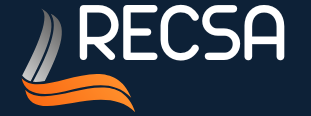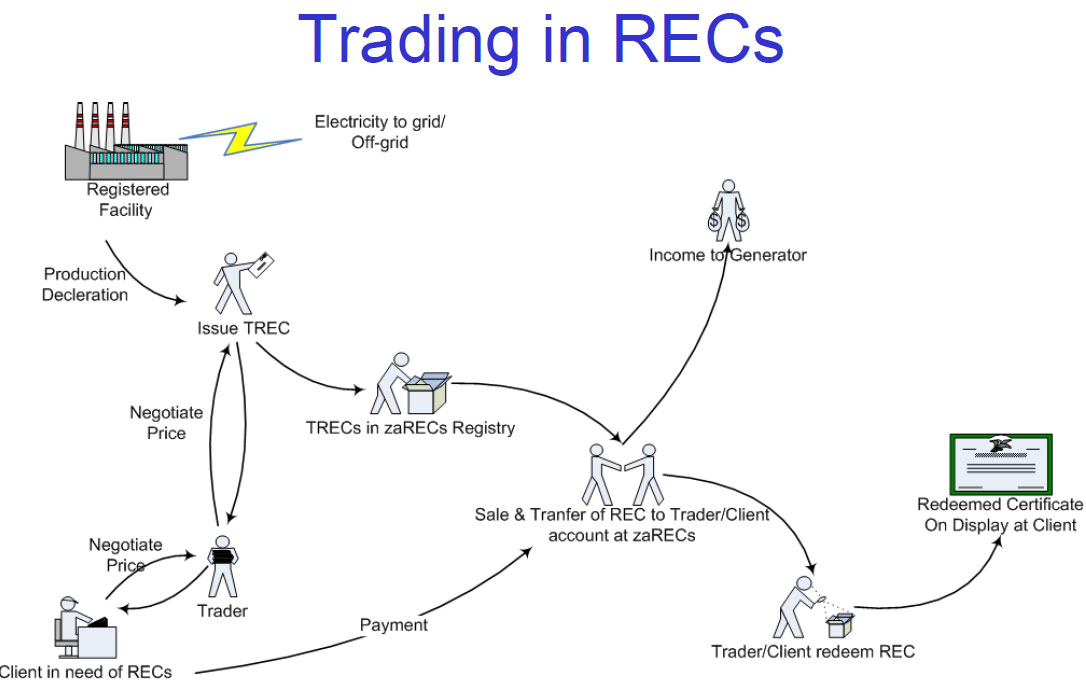Click on the image below for the full introduction presentation
Frequently Asked Questions – RECSA & zaRECs
Your guide to the Renewable Energy Certificate (REC) market in South Africa — including the role of RECSA (Renewable Energy Certificate Market Participants’ Association of South Africa) and zaRECs (South African Renewable Energy Certificates). Learn how RECs work, standards, fees, trading, and how organisations can participate in the voluntary REC market.
About RECSA
RECSA (Renewable Energy Certificate Market Participants’ Association of South Africa) is a non-profit body that supports the issuance, trading and redemption of Renewable Energy Certificates (RECs) in South Africa. RECSA helps ensure a transparent, credible and scalable voluntary REC market aligned with international best practice.
zaRECs are South African Renewable Energy Certificates that certify one megawatt-hour (MWh) of electricity was generated from renewable sources in South Africa. They align with global standards and provide auditable proof for clean-energy usage claims.
RECSA aligns with the European Electricity Certification Standard (EECS) Rules and is recognised by platforms such as the Carbon Disclosure Project (CDP) and RE100. Its South African Domain Protocol precedes the international I-REC Standard, providing strong international compatibility.
RECSA contributes to capacity-building across Africa via the upcoming African RECs Facility, sharing best practice and strengthening REC systems beyond South Africa.
RECSA supports emerging REC trading platforms and enables integration with prominent energy attribute certificate registries and monitoring systems. Several key initiatives include those listed under the trader/platform category of market participants, and work towards compatibility with local, regional and international platforms to enhance market access and transparency.
RECSA represents renewable energy generators, traders, platform operators, service providers, corporates and consumers participating in the South African REC ecosystem.
RECSA is designing a cost-effective and inclusive fee model — considering membership-based fees and transaction fee caps to avoid high fixed annual charges often seen internationally, especially supporting smaller market participants.
Engage by becoming a member and/or participating in REC issuance and trading. Visit www.recsa.org.za for guidance and contacts.
About zaRECs
Renewable Energy Certificates (RECs) are tradable certificates proving that one MWh of electricity was generated from renewable energy. They enable transparent, verifiable claims for the use of clean energy in South Africa.
RECs help organisations meet sustainability targets, improve ESG disclosure, comply with reporting frameworks, manage energy cost risks, access new markets and support local renewable projects — all while enhancing brand reputation.
After renewable generation is verified and certified, RECs are sold via negotiated pricing and agreements with device owners or traders. Optional retirement by the buyer allows environmental claims.
RECs do not technically expire; however, they are subject to eligibility windows for reporting. Common practice allows claims on RECs generated within 21 months of a reporting year.
Indicative costs: registering a production device ~R25,000 (ex VAT); issuance/transfer/ redemption ~R1.98 per MWh; minimum transaction fee ~R4,600 (ex VAT). Opening an account is typically free.
The office tracks, verifies, transfers and retires RECs, maintaining the central registry to prevent double counting and to ensure market integrity and auditability.
Buyers typically negotiate with a device owner or trader; transfers then occur through the zaRECs registry, which issues and tracks certificates on issuance.
RECs can be held in stock and do not need to be redeemed immediately after purchase. Many buyers hold and retire certificates to match reporting cycles.
zaRECs ensures all certificates are uniquely identified, verified and tracked end-to-end to prevent double counting. Certificates are issued directly by zaRECs after verification.
Yes. RECs are governed by recognised frameworks to ensure transparency and compliance. South Africa aligns with international standards for cross-border credibility.
Yes — RECs (zaRECs) can be traded in South Africa and internationally, enabling buyers to source credible certificates across markets.
For certificate mechanics and registry details, see the zaRECs site: zarecs.co.za/about. For governance and market participation, refer to recsa.org.za.

